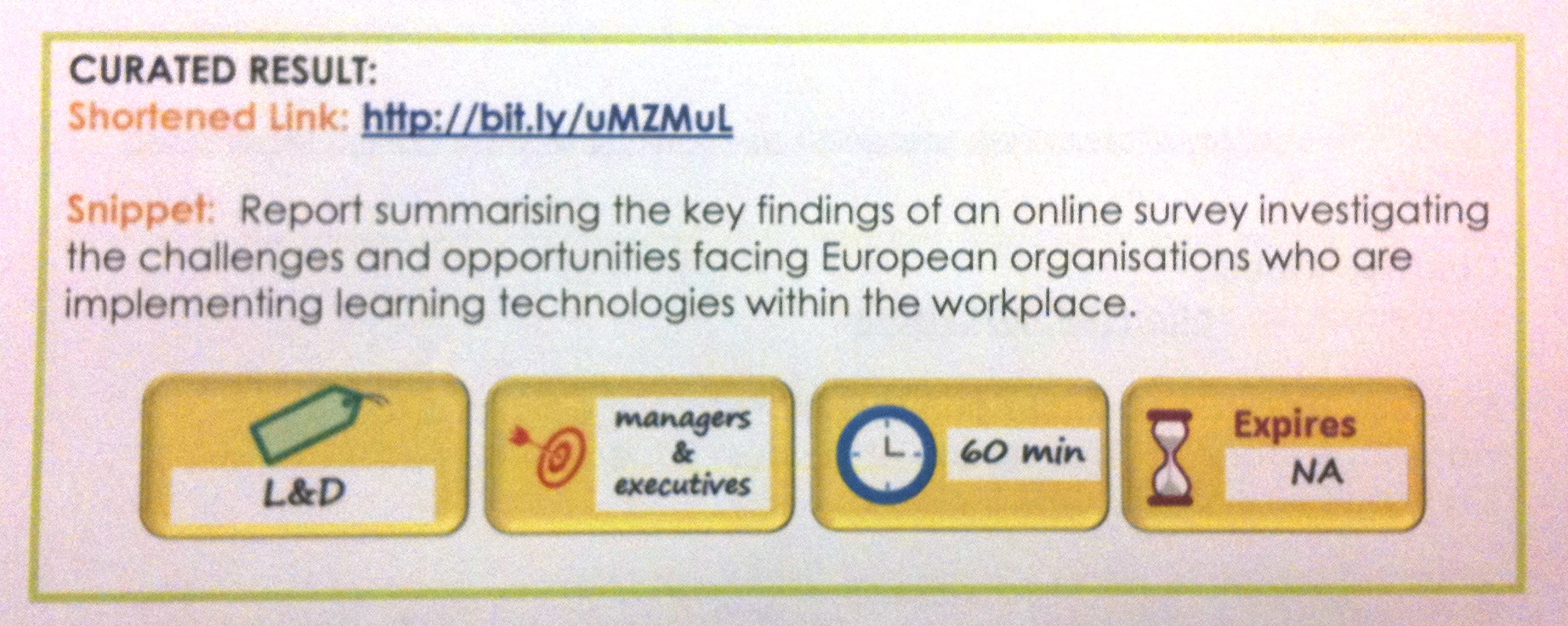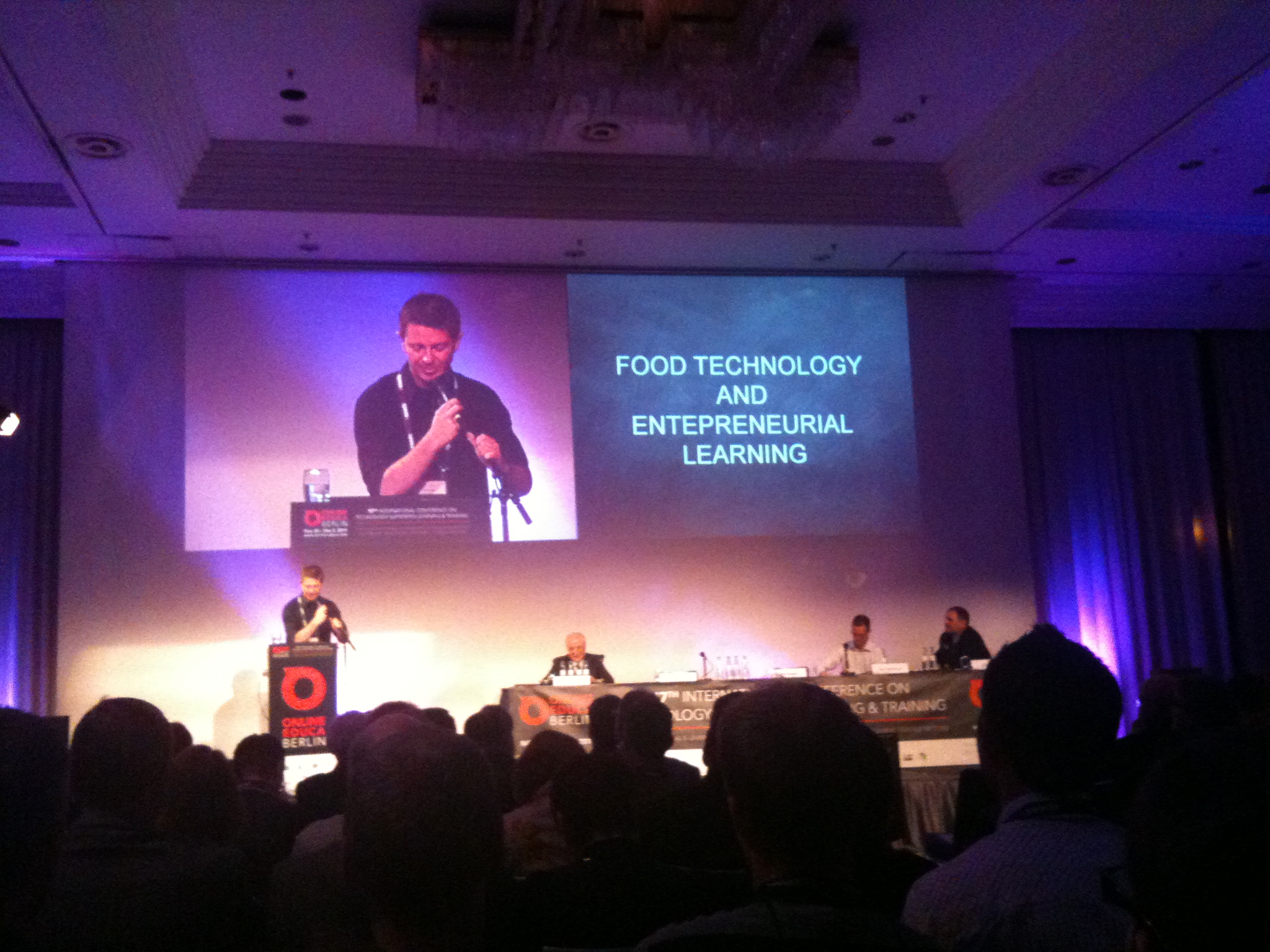Julie Wedgwood introduced her talk session titled “Managing Information Overload” by speaking about how much information comes our way every single day and how that could impact the way we introduce social networking into our (learning) business.
The problem
She used [Shakespeak to ask us a set of questions about whether we sometimes feel overwhelmed by information coming our way and whether we are sometimes distracted. Most people in the room answered these questions positively. She then asked how this made us feel: most people seemed to feel confused, stressed or oppressed. Why is this?
- There is too much information
- Too much replication of information (Joyce Seitzlinger pointed out that is actually also a signal for its importance)
- Difficulty in separating the relevant from the irrelevant
- Lack of time
The first solution: train people
Julie has done a few informal learning projects, setting up portals, microblogging (Yammer) and discussion forums. Initially this took off like a rocket. But suddenly it stopped working: people were starting to say that they liked it, but that they . She started solving the crisis by using Shirky‘s adagio “It isn’t information overload, it is filter failure”. She started to train people in how they should work with information through aggregators, filters and all kinds of other tools. This actually made the problem worse: people only got more information coming their way. Shiffman wrote in Wired in 2008:
Now that the first burst of enthusiasm for social networking has died, people are realizing that web 2.0 is actually a huge time sink. Facebook, Twitter, Flickr and Plaxo may have helped foster community and communication, but they’ve also added immensely to the flow of often-interruptive messages that their users receive, leading to information overload and possibly a nasty internet addiction.
In The Shallows , there are two types of information overload:
- Situational overload: searching for a needle in a haystack (of information)
- Ambient overload: a haystack-sized pile of needles (information)
The second is the problem her clients had. There really was too much good information.
The second solution: curation and a curation framework
Berners-Lee described three principle functions of the Internet:
- Allow anyone to access any type of document
- Allow everyone to disseminate their own documents
- Allow every to organize the entire collection of documentations
The last element is now actually happening on the web in an organic way. We are curating the content organically through our Tweets, likes, shares, etc. We should curate to link the content to business/learning initiatives, identify what is relevant in a particular context, see what the right signposts are.
They implemented this very explicitly through “listening centers”. Small teams would listen to all the information sources and tried to match things to themes that relate to business goals and then assign “theme” curators.They then created a curation framework. For each piece of information they decided in what theme it would fit, for who it would be relevant, how much time it would take to review and when the data would expire.

Julie then gave us some practice exercises: we had to curate three pieces of content. Her advice is to really make things really time sensitive, really add value to the piece of content that you curate and it should actually showcase learning. It is also important to find subject matter experts, work with the communication department and external organizations.
Some tools to help with information overload
Julie recommends a few tools that might help with information overload. Readitlater or Instapaper can help you get more reading done. Another tool that is interesting is Symbaloo which allows you to create a visual and shareable set of favorite links around a topic. Her “mix” for content curation is available here. She uses Scoop.it! a lot. Learnfizz is in beta and similar to Scoop.it!, but will eventually work inside organisations.
My thoughts on this
This was an excellently prepared session: properly designed with a good mix of activities and information. I have to admit though that I don’t believe that her curation framework solves the problem of information overload for the true knowledge worker (i.e. for somebody like me) because it is just an extra information source. It is an interesting extra layer on top of internal social networking tools though: basically a slower and more focused source. Three things worry me:
- Scalability. What happens if the internal information become so big that it can’t be manually curated effectively anymore? Would it be possible to automate this? Could we use something that is similar to Summify.
- Quality. How we know that the curator is doing a good job and the most important thing isn’t missed?
- Specificity (i.e. how personal is it). We all know that everything is miscellaneous and to me a “recommendation” should be to an individual not to a group.


